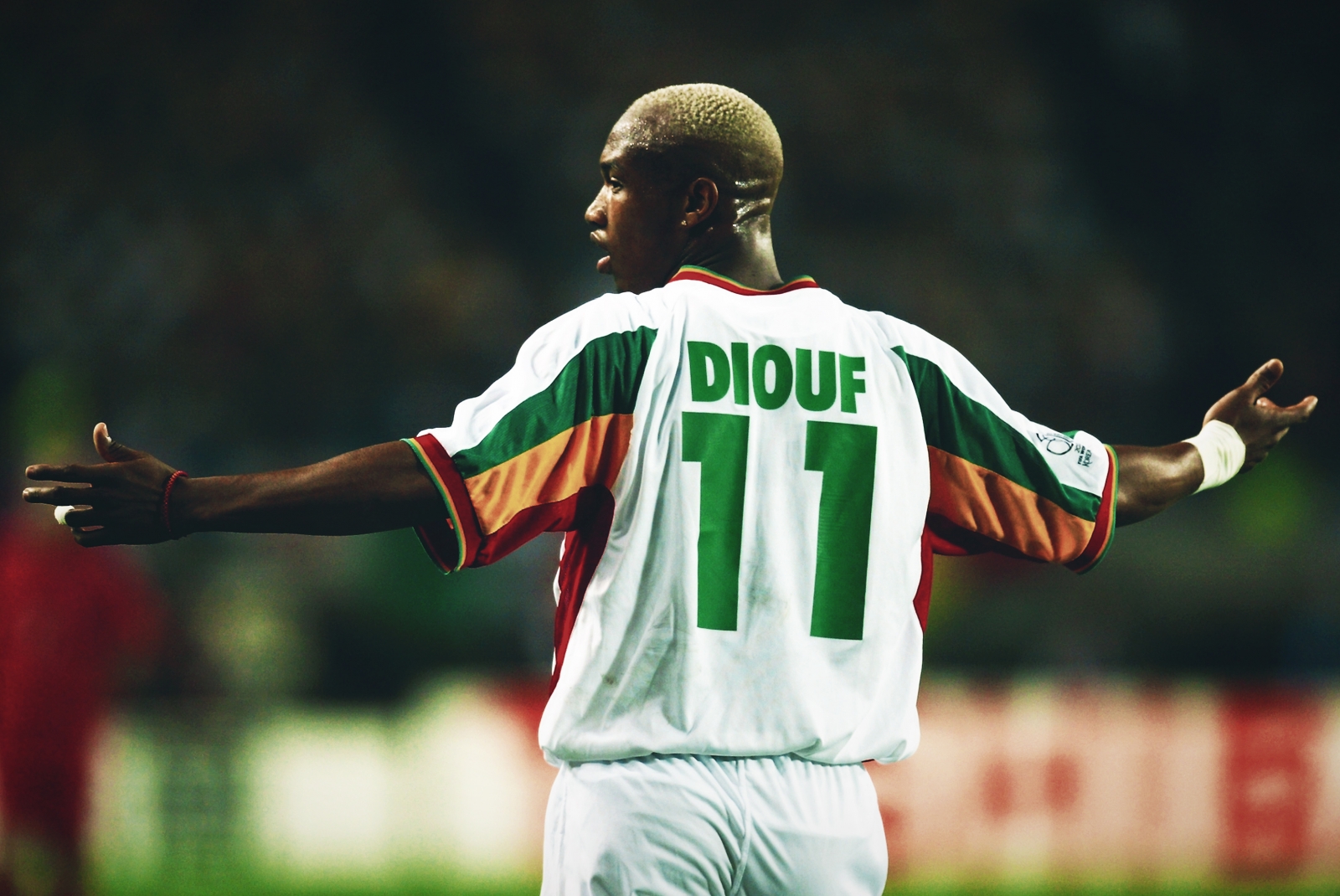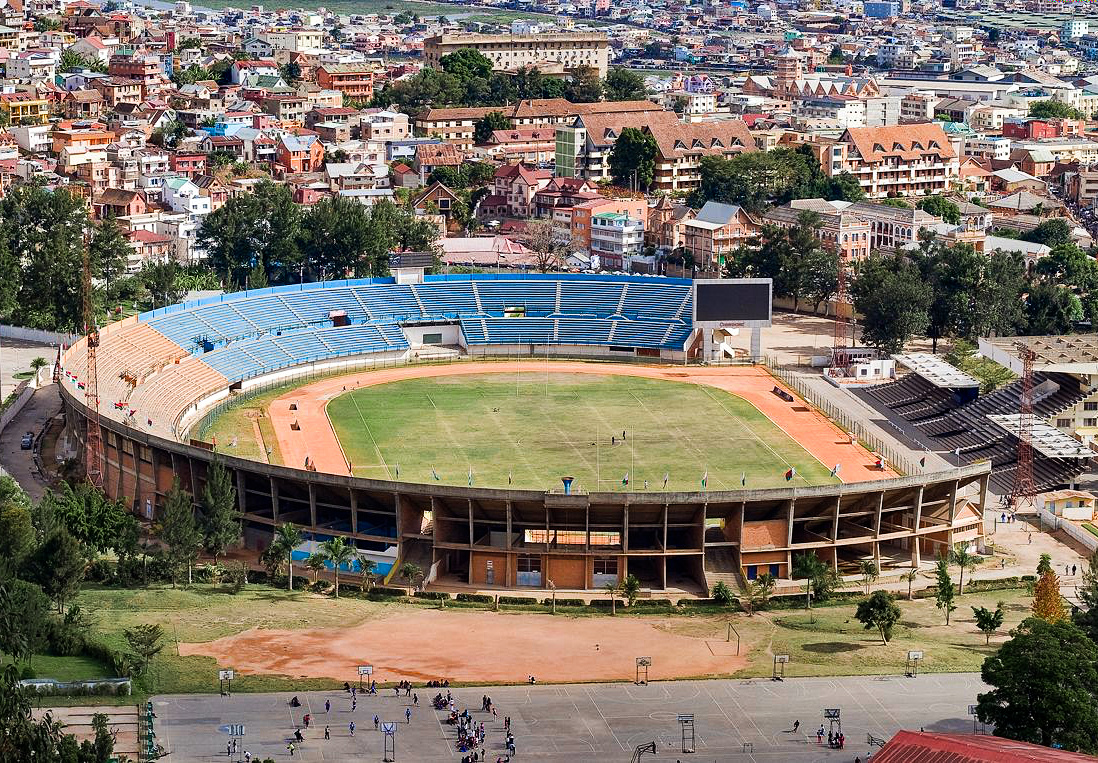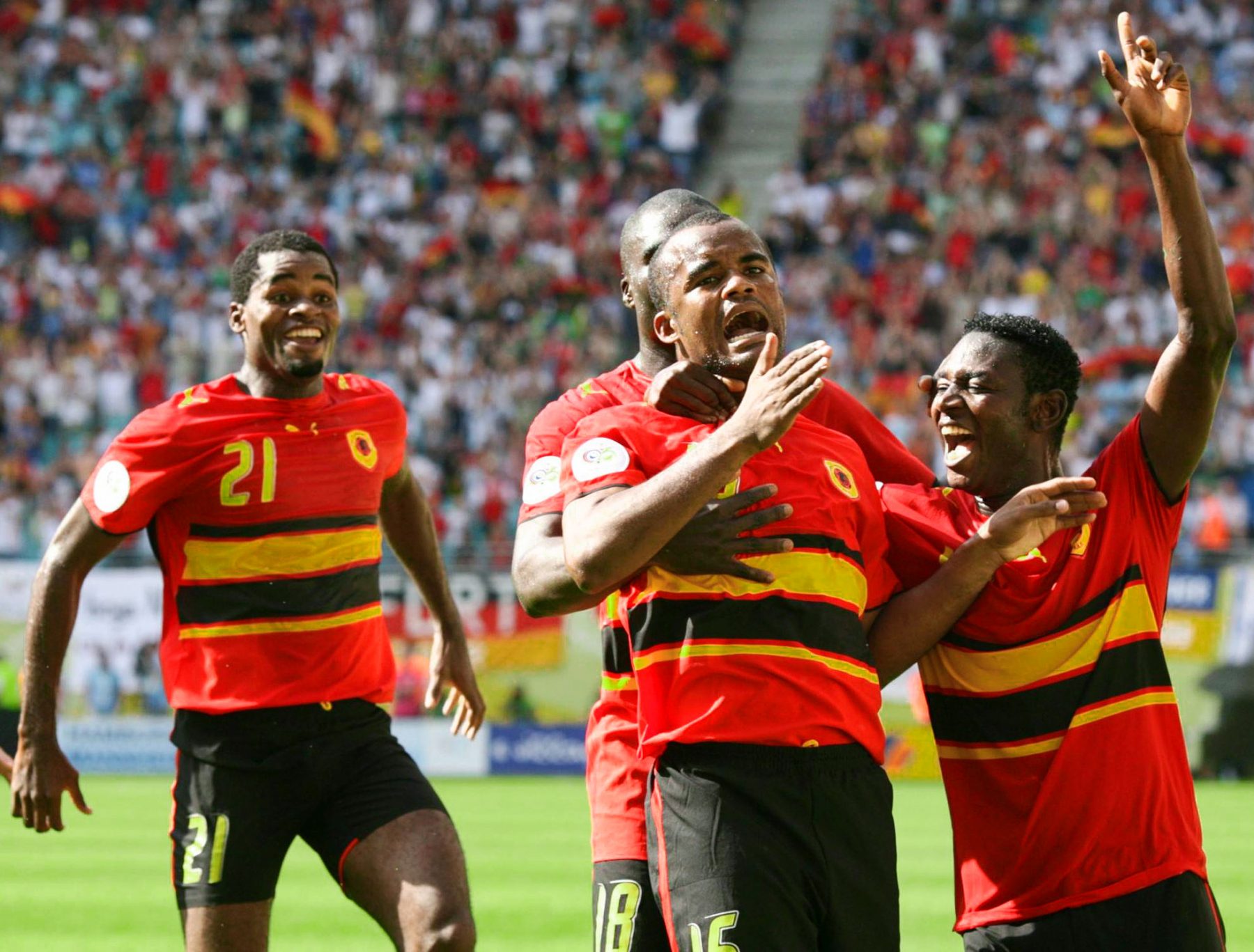Madagascar don’t qualify for major tournaments. That’s the bottom line that no one’s ever dared to question. There have been 49 major tournaments since the Malagasy national team was formed in 1947 and Madagascar have been at none of them. They don’t have a World Cup appearance to their name, nor have they ever played a match at the Africa Cup of Nations. That was until now. It’s been 50th time lucky for Barea. This is the story of one of the most remarkable and inspiring rises in international football history.
To truly understand the sheer weight of the achievement, you have to go back to June 2007. Madagascar had just lost 2-0 at home to Gabon in capital city Antananarivo in the final fixture of their AFCON qualifiers. They’d been chucked in a group with Gabon, Ivory Coast and Djibouti.
The latter withdrew without stating why before a ball was kicked, which left Madagascar looking up at Gabon, who had a relatively good reputation having qualified for three previous AFCON editions, and gawping up at Ivory Coast, who boasted global stars in Didier Drogba and Yaya Touré and were just discovering their golden generation of talent. Madagascar lost home and away against the pair, conceding 14 and scoring none.
The last two of those defeats came in June 2007; 5-0 to Ivory Coast and then that 2-0 loss to Gabon. Madagascar were chewed up and spat out by stronger opposition yet again, falling to their lowest ever standing in the FIFA world rankings. Their position of 167th that summer saw them placed behind the likes of Chinese Taipei and the Turks and Caicos Islands. They were the seventh lowest ranked team in Africa out of a total of 55 nations and, given that only 16 teams could qualify for AFCON, that’s a lot of catching up to do.
Madagascar were eliminated from qualifying for the 2010 World Cup in South Africa before it even reached the final stage. In qualifying for AFCON 2013, they didn’t even make it past the first stage, thumped 7-1 on aggregate in a playoff with Cape Verde. They fell at the same stage two years later as Uganda dumped them out on away goals.
As for AFCON 2017, the preliminary rounds were scrapped in favour of a European-style, all-in group stage. Madagascar finished bottom of their group behind DR Congo, the Central African Republic and Angola, but progress was evident. Auguste Raux’s side managed to take points off the Central African Republic and Angola and lost just half their games.

Read | The joy and despair of a superb Senegal side at the 2002 Africa Cup of Nations
Despite these vaguely promising signs, Raux was replaced in March 2017 by Nicolas Dupuis, who’d spent his playing career as a full-back in the lower reaches of French football. His previous coaching experience had been with clubs at that level and he’d been in charge of AS Yzeure for the five years prior, overseeing a merge with AS Moulins. Not many people in Madagascar had heard of him. In fact, the vast majority of football fans in France still won’t know who he is. If you whack his name into Google, you’ll find Nicolas Dupuis the tech investor and Nicolas Dupuis the pianist from Montreal before you come across Nicolas Dupuis the football coach.
Dupuis’ first task as Madagascar manager was to negotiate the preliminary stage of AFCON 2019 qualifying, as Barea were drawn against Sao Tome and Principe in the two-legged play-ff. An own goal saw them take a narrow 1-0 lead from the first leg away from home before Paulin Voavy’s double and Carolus Andriamatsinoro’s 81st-minute goal saw the hosts take the second leg 3-2 to progress 4-2 on aggregate. Madagascar joined the 47 other teams for the next round where they were drawn into 12 groups of four, with first place in each qualifying for the finals alongside the three best runners-up and hosts Egypt.
When Madagascar were placed alongside Senegal in Group A, everyone was happy to be going toe-to-toe with some of Africa’s biggest stars rather than disappointed to see their qualifying campaign end before it had even started. No one even considered finishing above Senegal.
Madagascar were also drawn with Equatorial Guinea, who had finished fourth in 2015 at their home tournament, and Sudan. Captain Faneva Ima Andriatsima put Madagascar ahead away in Sudan in their opening game before Andriamatsinoro doubled the visitors’ lead from the penalty spot after half time. Andriatsima netted a third after Sudan had pulled one back and Madagascar had three points on the board.
While that victory had cautiously got the country’s hopes up, the Confederation of African Football (CAF) decided to increase the number of teams in the final tournament from 16 to 24. Now, the top two teams from each group would qualify automatically for AFCON 2019. A door that had been bolted shut for decades was suddenly slightly open.
After over a year’s break due to the World Cup, matchday two of qualifying saw Sadio Mané and Kalidou Koulibaly come to town as Senegal travelled to Antananarivo. Moussa Kanoté’s sweet strike found the back of the net to give the visitors the lead but Voavy sent the home crowd wild as he equalised shortly before the break. Most people in attendance were a little taken aback by how good Madagascar were, by the fact that they weren’t just rolling over.

Read | The day questionable refereeing decisions led to a 149-0 scoreline
Monaco’s new €30m signing Keita Baldé put Senegal back in front in the 62nd minute and normality was restored – for another five minutes. The Barea sent a free-kick into Senegal’s penalty area and, with the ball almost certainly out, it was headed back into the six-yard box where Koulibaly could only divert past his own goalkeeper. The stadium bounced back into life in a mixture of delirious celebration and bemusement.
It was no coincidence that Madagascar’s upturn in form had come shortly after Dupuis had taken charge. The coach had built up a wide network back home in France and was scouring the country for players with Malagasy descent. If you gaze down the squad list for AFCON this summer, there are nine French-born players and 14 in total playing in France. There are just four left plying their trade in Madagascar.
“Madagascar gained independence from France in 1960 but there is still a strong connection between the countries,” Andriatsima told the BBC last year. “There is no professional football league in Madagascar so many players choose to go to France to pursue their dreams. I did so when I was ten and I am grateful for the opportunity. However, we are now seeing more and more that players born to Malagasy parents want to serve their country and play a significant role in Madagascar’s progress.
“This makes me very happy, that players want to honour their country. Players of dual-nationality have helped us move forward and we are proud to see them play – whether it’s in France, Germany, Belgium or any other country in the world.”
There are more Malagasy players playing professionally than ever before. Midfielder Anicet Abel Andrianantenaina, known as Anicet, has spent the last five years at Ludogorets in Bulgaria and featured in their recent campaigns in the Champions League and Europa League. He’s played against Real Madrid, Liverpool and Paris Saint-Germain, among other top European clubs, and has experience that very few members of the current squad can call upon. Superstars like Mané and Koulibaly don’t scare him, and this translates to the rest of his teammates.
Madagascar would now face back-to-back games against their main rivals for second place. Equatorial Guinea had beaten Sudan but had gone down 3-0 to Senegal in Dakar. Barea would have to go to Bata first before hosting Equatorial Guinea three days later in Antananarivo. Their skipper, who hade his international debut during the dark days a decade before, proved to be the difference-maker again. His 19th-minute strike was the only goal of the game and, in his words, pulled off the most important result in the history of football in Madagascar. “It was when we knew we could go all the way,” he said.

Read | How Angola and Togo briefly flirted with the world’s best
With Dupuis’ side sitting four points ahead of Equatorial Guinea with three games of qualifying left, all they needed was a win and they’d be in. After 71 years of footballing obscurity, it all came down to the next 90 minutes at the Vontovorona Stadium. Obviously, there were two more matches afterwards to seal qualification, but when you’ve waited for decades and watched defeat after defeat, you want it done as soon as possible.
The reality of this momentous moment hadn’t quite sunk in when the players made their way out of the tunnel into the Malagasy daylight, urged on by jubilant home support. People sat on the walls around the ground, they watched from the gangways and stairways, there was no room to breathe. Everyone had been swept up by a sea of colour.
Madagascar took to the rugged pitch with a strange sense of freedom, but tension lingered with every passing minute without a goal. That was until Njiva Rokotoharimalala picked up the ball deep into Equatorial Guinea’s half and daintily dribbled into the space in front of him. The defenders kept backing off until they were inside their own box. As the opposition continued to retreat, Njiva stopped around 20 yards from goal, creating a space ahead of him big enough to shimmy onto his left and bury the ball past the goalkeeper at his near post.
Now they had something to defend; not only a goal, but their place at a major tournament. The visitors came at them for the majority of the second half but Madagascar stood strong. As the clock ticked down, Equatorial Guinea were desperately swinging in corners, hoping that a player in red could head one home. They didn’t. Before they could take another one, the whistle sounded.
The Malagasy players swung their arms in the air, skipping away from their own penalty area in sheer delight and disbelief. A jubilant scream erupted around the stadium as flags, shirts and children were held aloft. It’s not just a defining moment in Malagasy football history, it’s the defining moment. The only moment worth remembering after years in the wilderness. “It was nice that people got to know Madagascar but it is a shame that it is through a fictional movie and not through a real-life achievement,” Andriatsima said. “Now, we hope that can change. I believe everybody will now know that there is also football in Madagascar.”
“When I was a child I watched Bebeto, Romário, Leonardo on TV – this golden generation of Brazil. Now that we are playing in the most prestigious competition on the continent I hope that future generations in Madagascar can be inspired by us and that this tournament will be remembered as a turning point.”
Madagascar lost their final two qualifiers, but no one cared. Dupuis’ men will go up against some of the grandest names in African sport when they take to the pitch in Egypt this summer. John Obi Mikel’s Nigeria, Naby Keita’s Guinea and Saido Berahino’s Burundi await them in Group B. The top two will reach the knockout stages along with four of the best runners-up. The tournament will be a final bow for many of Madagascar’s ageing squad, but they’ve arguably already had their happy ending.
By Billy Munday @billymunday08
Author :
Publish date : 2019-06-22 07:00:00
Copyright for syndicated content belongs to the linked Source.
The post How Madagascar rewrote the history books and qualified for the Africa Cup of Nations first appeared on Africa-News.
—-
Author : africa-news
Publish date : 2024-10-14 08:44:21
Copyright for syndicated content belongs to the linked Source.